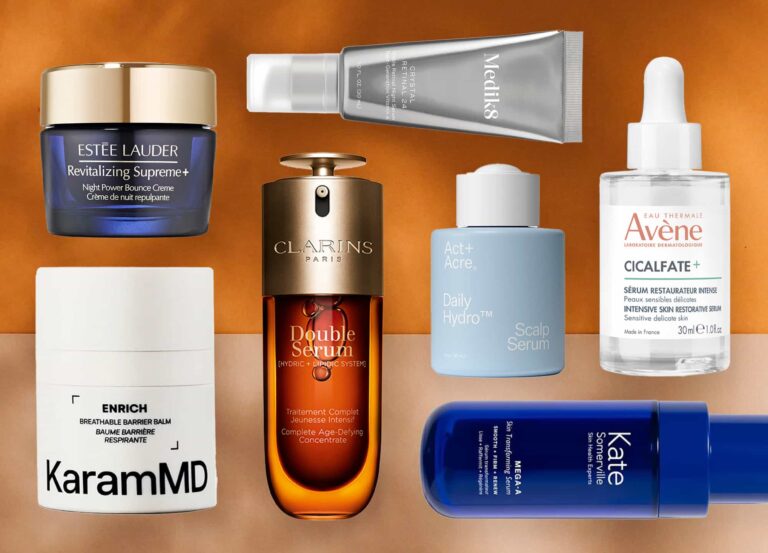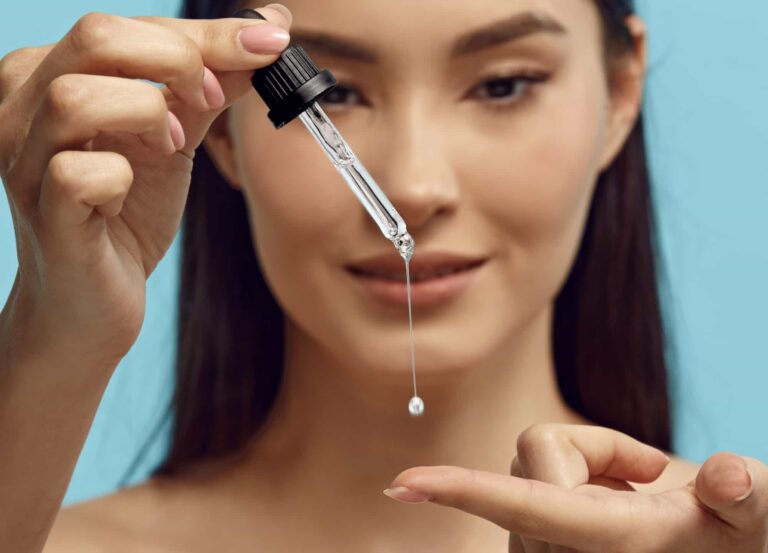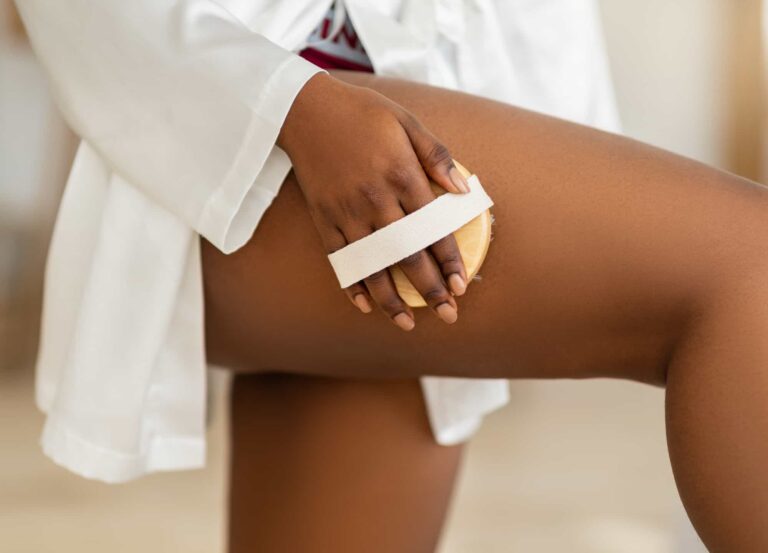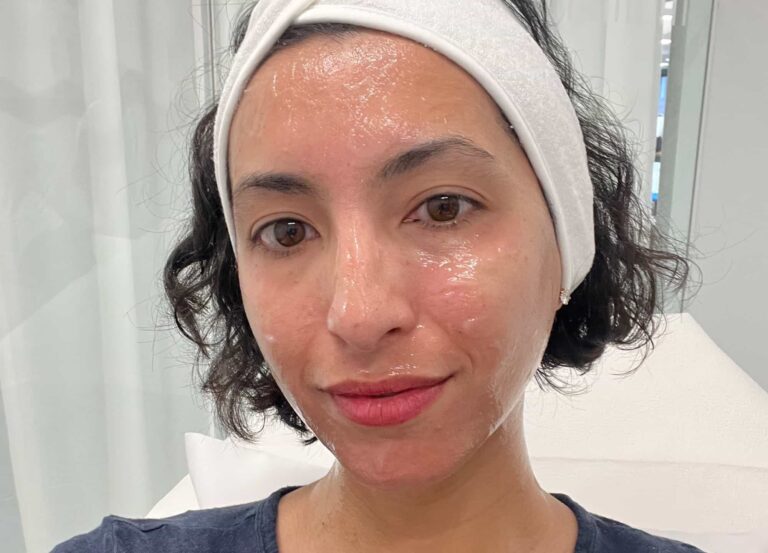This article has been medically reviewed for accuracy by Danville, CA dermatologist Dr. Sonia Badreshia-Bansal on August 25, 2020.
For those who suffer from moderate to severe acne, isotretinoin (known commonly as Accutane) can be a lifesaver. It’s the closest thing to a “cure” we have for acne and is proven to work at either completely eradicating or minimizing acne for the majority of people who take it—studies have shown it has an estimated 85% success rate.
It is also not a drug to be trifled with—it’s been linked to everything from extreme skin dryness to depression and birth defects. Which is why it’s crucial to adhere to the guidelines given to you by your prescribing physician.
“I use Accutane as a last resort to fight serious acne issues,” says Dr. Dennis Gross, a board-certified dermatologist in New York City. “If you don’t absolutely need it, you shouldn’t take it.” This isn’t an acne medication for those with the occasional breakouts or pimples but, rather, those with chronic, persistent acne that a diligent at-home skin-care routine or prescription acne treatment, such as a topical retinoid, an oral antibiotic, or spironolactone doesn’t work for. That said, it can be a life-changing drug for many who have struggled with acne and the social stigma and self-consciousness it can cause. “Accutane is a game changer for our patients with severe acne who also have a potential of a lifetime of acne scars,” notes Dr. Janet Allenby, a board-certified dermatologist based in Delray Beach, Florida.
We asked both doctors for a quick primer on all things Accutane and the top seven things you should never do while taking the drug. Here’s everything you need to know before you go on isotretinoin.
What is Accutane?
An oral derivative of vitamin A, Accutane is one brand name of isotretinoin; other ones include Absorica, Amnesteem, Claravis, Myorisan, Sotret, and Zenatane. It bears mentioning that the brand name Accutane was actually discontinued more than a decade ago, though doctors and patients still continue to refer to oral isotretinoin as such.
How does Accutane work?
Isotretinoin works primarily by reducing the size of your oil glands, reducing sebum production, and minimizing the pore clogs that initiate acne breakouts. It’s typically taken once daily at varying doses, depending on your weight and the severity of your acne. A complete round of isotretinoin treatment can last anywhere from four to six months, and while most patients see an improvement after one round, some people may find they need to undergo a second (and, rarely, third) course of treatment for best results.
Who can take Accutane?
According to Dr. Allenby, “If there are no underlying health risks that are unique to Accutane treatment—such as liver and gastrointestinal disease, certain medications, or depression—a course of Accutane for severe to moderately severe cystic type acne may be a good option.” If you are pregnant or breastfeeding, you cannot take Accutane; it has a very high risk of causing severe birth defects.
What should you avoid while taking Accutane?
As mentioned above, because of its numerous serious side effects, taking isotretinoin means you are going to have to make some major changes, in both your skin-care routine and your lifestyle. We’re talking blood tests, pregnancy tests, and monthly check-ins with your doctor. With that in mind, here are the most important guidelines for anyone on Accutane.
Related: 14 Skin-Care Ingredients for Busting Cystic Acne
Don’t drink alcohol on Accutane
Be prepared to put down your wine glass for the next four to six months. “Accutane by itself can put strain on the liver,” cautions Dr. Gross. “Accutane combined with alcohol can have dangerous side effects, including liver damage, and cause changes in the lipid levels in your blood.”
Stay out of the sun
As Dr. Allenby points out, just like topical vitamin A, isotretinoin will make your skin much more sensitive to the sun. Limit all sun exposure while on Accutane, avoid direct sunlight, and always wear sunscreen with an SPF of at least 30, even on cloudy days. Some doctors recommend waiting to do your course of Accutane in the winter, when you won’t be spending the majority of your time outside.
Always use protection when having sex
This warning is specific to female patients, since Accutane does not affect the reproductive system of men. Getting pregnant while on Accutane can lead to severe birth defects, ranging from cleft palate to heart defects and intellectual disabilities. Women on Accutane are required to participate in the ipledge program, essentially a safe-sex quiz, each month to prove they both understand the facts and are practicing two forms of approved birth control. (This program is manufactured-sponsored, but is FDA-approved and also has the support of the American Academy of Dermatology.) It must be filled out every month in order to have your prescription filled. You must also have monthly negative pregnancy tests at your doctor’s office. Point being, an effective form of contraception is absolutely paramount for anyone who is sexually active while they’re on isotretinoin. Breastfeeding mothers are not recommended to take Accutane—while there aren’t any studies that prove it can be passed from mom to baby via breast milk, there also isn’t any definitive, conclusive evidence that says you can’t.
Stop using other acne treatments
It might feel counterintuitive, says Dr, Gross, but “do not combine Accutane with any other products that help combat acne. Using products with salicylic acid, retinol, or benzoyl peroxide can leave skin red and burning.” Instead, switch to ultra-gentle cleansers and moisturizers, preferably those without active ingredients. The temptation to use your regular acne products and creams will be strong, especially at the start of your treatment—both doctors note that for many people, their skin will actually get worse before it gets better—but avoid the urge or risk permanent damage to your skin’s moisture barrier. Similarly, you’ll want to avoid any type of cosmetic treatment that are harsh on the surface of the skin while you’re on this acne medication and for at least six months after. This includes things such as laser treatments, chemical peels, dermabrasion, and even waxing. Also important to note: Because Accutane works by decreasing the size and output of the sebaceous glands, you will most likely experience some severe dryness on the drug. Chapped lips, cracking, peeling, flaking, and stinging pain, are common side effects, but it’s not just dry skin that’s the issue; dry eyes and nose bleeds are also possible. Be sure to stock up on all things moisturizing and comforting.
Monitor your mood
While they’re not common side effects, there has been evidence that Accutane can affect mental health and cause depression and suicidal thoughts in some patients. “Anyone with a history of depression must get clearance from their doctor before the prescription can be written,” notes Dr. Gross. “Even without a history of depression, mood changes, ranging from feeling blue to depressive symptoms, may occur on Accutane. The medication must be discontinued if the symptoms arise—they [usually] subside with stopping the medication.” Keep track of your moods, and if you feel depressed or start having suicidal thoughts, call your doctor immediately.
“There is controversy regarding the association between suicidal thoughts and Accutane,” adds Dr. Sonia Badreshia-Bansal, a board-certified dermatologist in Danville, California. “I counsel my patients to report any new depression. Sometimes, teens are undergoing depression due to their acne, not necessarily the medication and this is a very viable and overall still safe treatment (under supervision) as a real option to treat acne and prevent scarring.”
Limit exercise and physical exertion
“Most people who take Accutane get very tired during the treatment course, and some patients have muscle aches and bone aches,” says Dr. Allenby. For that reason, you should avoid any high-impact sports or grueling workouts. Your body may not respond and recover like you are used to, and you don’t want to exacerbate the aches and pains.
Avoid elective surgery and cosmetic procedures
“There is delayed wound healing associated with Accutane,” says Dr. Allenby, meaning you are more likely to scar. So don’t plan any elective surgeries or procedures like chemical peels and facial resurfacing, both while you are taking Accutane and up to six months after you have stopped treatment, since studies have found that you are still at risk for damaging your skin even after you’ve stopped taking the drug.
Bottom line
Accutane is not for the faint of heart. It truly is a life-changing drug for many, but the side effects of isotretinoin are very real. Only you and your doctor can determine if the risks are worth the rewards in your particular case, so be sure to have an open and honest conversation about your existing health issues, pregnancy plans, family medical history, drinking habits, and expectations with your physician prior to making the decision to start Accutane. We can’t stress this enough: Accutane is a last resort for a reason. If you don’t think you can stick to these guidelines and additional advice from your doctor, you should not take it.











